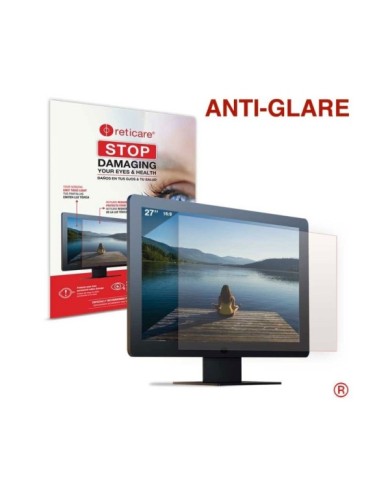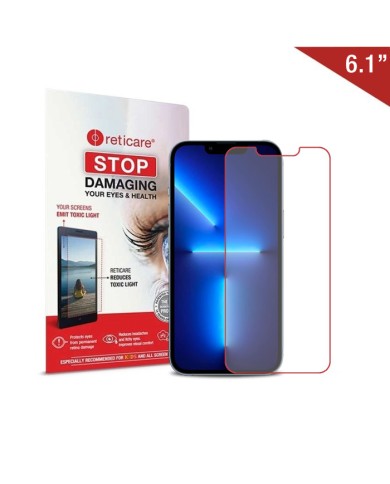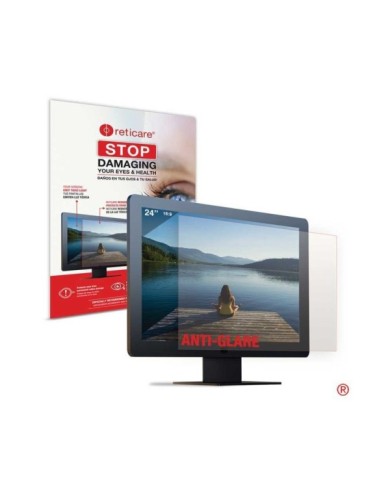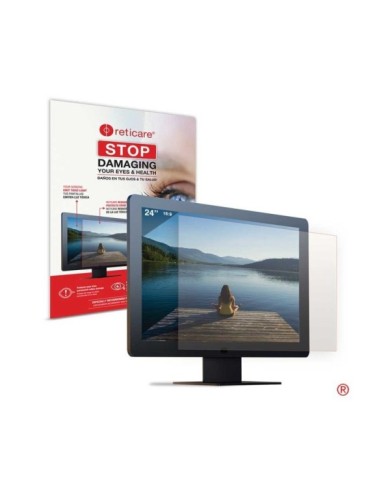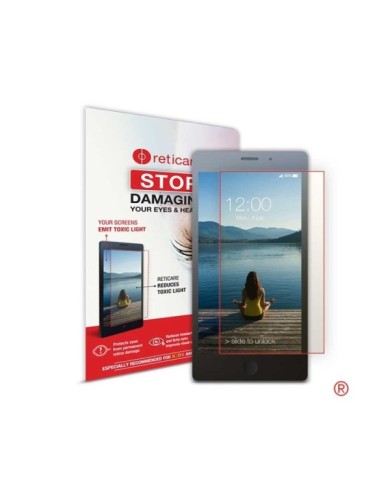See if you recognize these common symptoms below.
⬇ Scroll down to learn more about each symptom
Eye Fatigue
Do your eyes feel sore, unfocused, or overly sensitive to light after long screen sessions?
Blue light tires the visual system, leading to blurred vision, eye pain, or trouble concentrating.
These may be early signs of ocular fatigue, often seen in people who spend long hours on computers.

Dry Eyes
Are your eyes dry, gritty, or more easily irritated after prolonged screen use?
Staring at digital screens reduces blink rate, causing tear instability and increased ocular dryness.
If left unaddressed, this can lead to chronic eye irritation or even vision fluctuations over time.

Headaches and Migraines
Do you often experience tension headaches or migraines after screen use, especially in the late afternoon?
Prolonged exposure to blue light can overstimulate the brain, leading to visual fatigue and light-induced discomfort.
Individuals with light sensitivity may experience worsening symptoms, especially without screen protection.

Poor Sleep Quality
Ever find it harder to fall asleep after scrolling through your phone or watching a screen at night?
Blue light delays melatonin release, disrupting the body’s sleep rhythm and making rest harder to come by.
Over time, this can lead to sleep disorders, especially in teens, children, and night-time screen users.

Increased Sugar Intake
Late-night screen sessions leave you craving sweets the next day?
Poor sleep and blue light can disrupt appetite signals, leading to cravings and blood sugar swings.
Over time, this may raise the risk of prediabetes, especially in adults with sedentary routines or irregular sleep patterns.

Screen-Induced Skin Aging
Seeing more dark spots or uneven tone after heavy screen use — even with regular skincare?
Blue light can trigger pigmentation and speed up visible skin aging.
These may be signs of screen-related skin damage, especially in women sensitive to light exposure.

Early-Onset Eye Aging
Have your eyes been feeling more tired or less sharp after regular screen use?
Blue light can speed up natural lens aging, leading to early signs of cataracts or a decline in visual clarity — once considered issues of much later life.
More people are now noticing these changes sooner than expected, making early protection more important than ever.

Long-Term Vision Damage
Wondering how screen time affects your long-term vision?
Blue light can damage cells in the retina and macula — areas essential for sharp, central vision.
This damage is often irreversible and can’t be corrected with glasses or surgery. That’s why early protection matters — for everyone.

Frequently Asked Questions About Screen-Related Health Risks
Digital eye strain may start with mild discomfort — like dry eyes or blurry vision — but it doesn’t stop there.
Prolonged screen exposure without protection can lead to persistent headaches, sleep disruption, and even long-term vision problems.
Ignoring these symptoms may worsen the damage and make recovery harder over time.
Early prevention is key.
To reduce digital eye strain:
- Use certified blue light filters like Reticare®
- Apply the 20-20-20 rule: Every 20 minutes, look 20 feet away for 20 seconds
- Ensure proper lighting and screen brightness
- Use artificial tears if your eyes feel dry
Combining these habits with Reticare protection helps relieve symptoms and protect your long-term vision.
Yes. Reticare is backed by almost 20 years of scientific research conducted in collaboration with the University of Complutense, Madrid (UCM).
- Proven to reduce retinal cell death caused by blue light
- Developed and endorsed by eye health professionals
- Reticare is the only solution with published results in peer-reviewed journals
This makes Reticare a medically validated solution for screen-related eye protection.
Want to see the scientific evidence? View all scientific studies →
The best way to reduce blue light risk is to use protection that’s backed by scientific research and recommended by eye health professionals. Reticare offers the only medically validated solution, proven to protect your vision for the long term.
Ready to protect your vision?
Risk Groups
Years of scientific research show that Reticare® protection is most critical for users with higher exposure or pre-existing eye conditions.
🔴 Very High Risk Groups
Recommended: For maximum protection, use Reticare on all your devices plus our
blue light blocking glasses
(especially for TV and extended screen use).
Best for: Heavy screen use or pre-existing eye issues.
- › More than 8 hours/day on screens
- › Any eye condition or past eye surgery
- › Kids & teens with daily device use
- › Professional gamers or video editors
- › Frequent VR users
🟡 High Risk Groups
Highly recommended: Use Reticare protection for all screens
- › Users who look at screens more than 5 hours per day
- › Users who use screens every day and are older than 50 years old
- › Video gamers and occasional Virtual reality users
Real Testimonials from Our Users
Discover Our Best-Selling Protection
Trusted by thousands — optimized for laptops, smartphones, and daily screen use.
Discover Our Best-Selling Protection
Trusted by thousands — optimized for laptops, smartphones, and daily screen use.
Do not hesitate to call us if you need help during the process or have any questions.
Our team is committed to protecting your eyes from this serious risk and is happy to assist you.
Any questions? Our specialists are here to help!
📞 Call +1 (813) 287-4867

